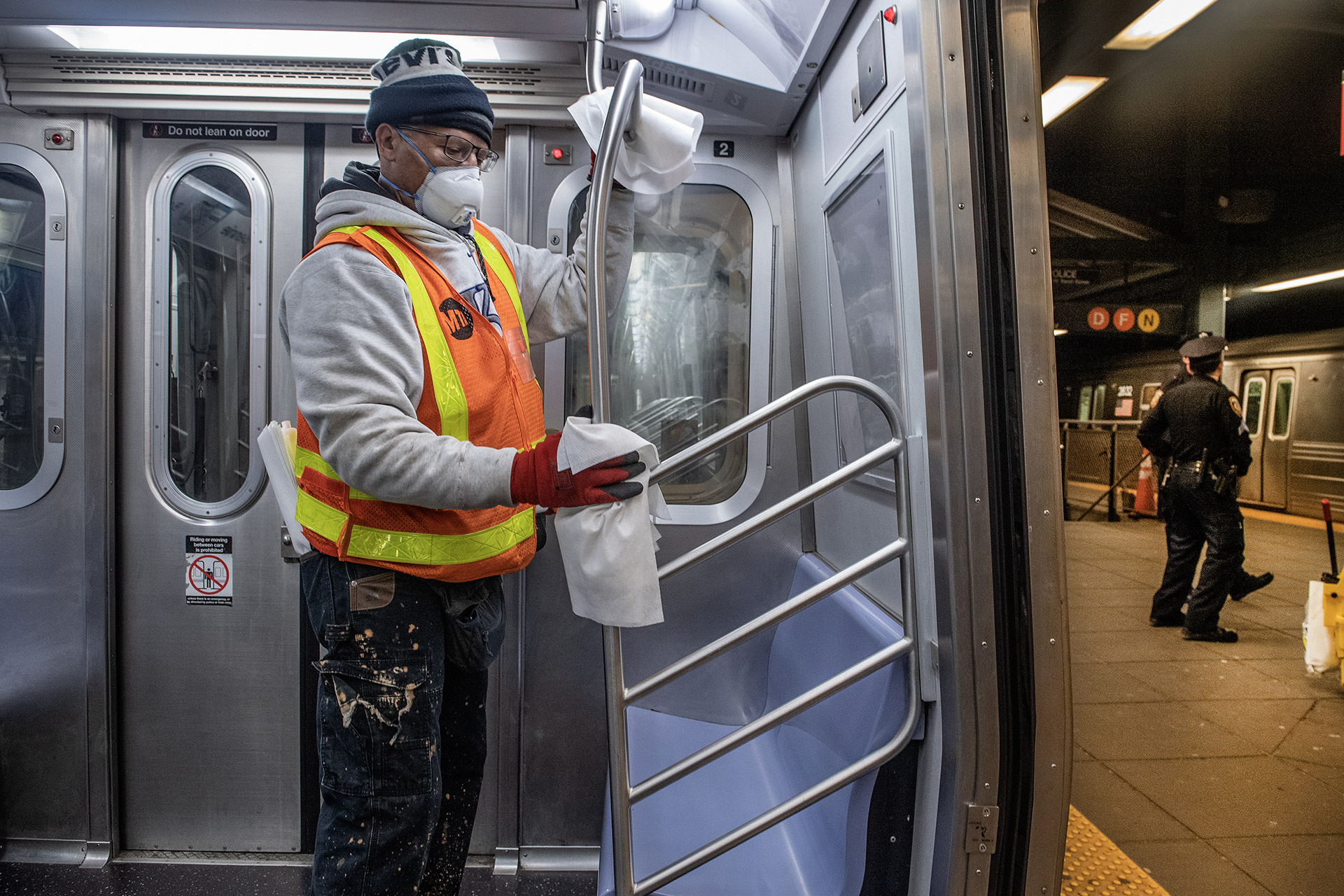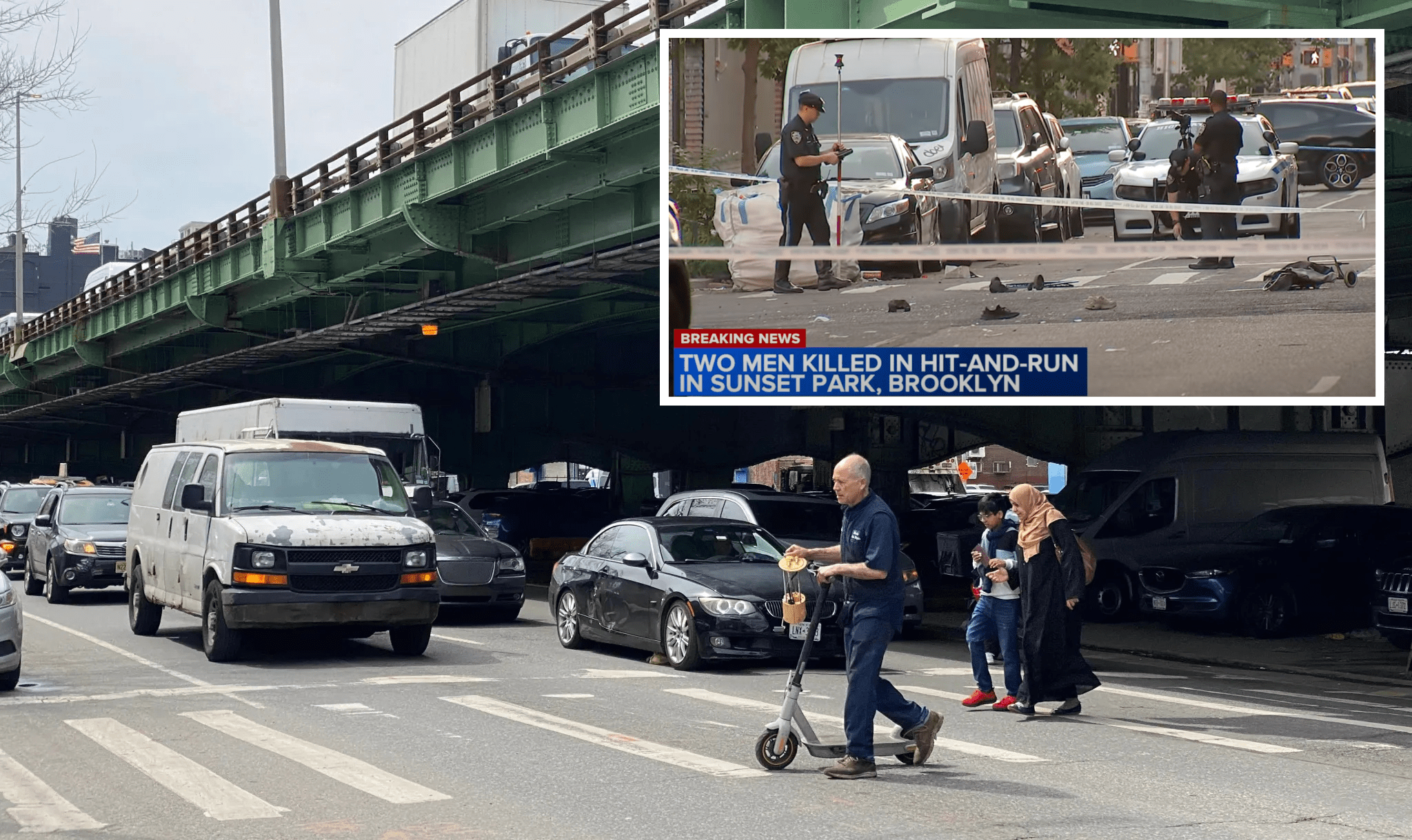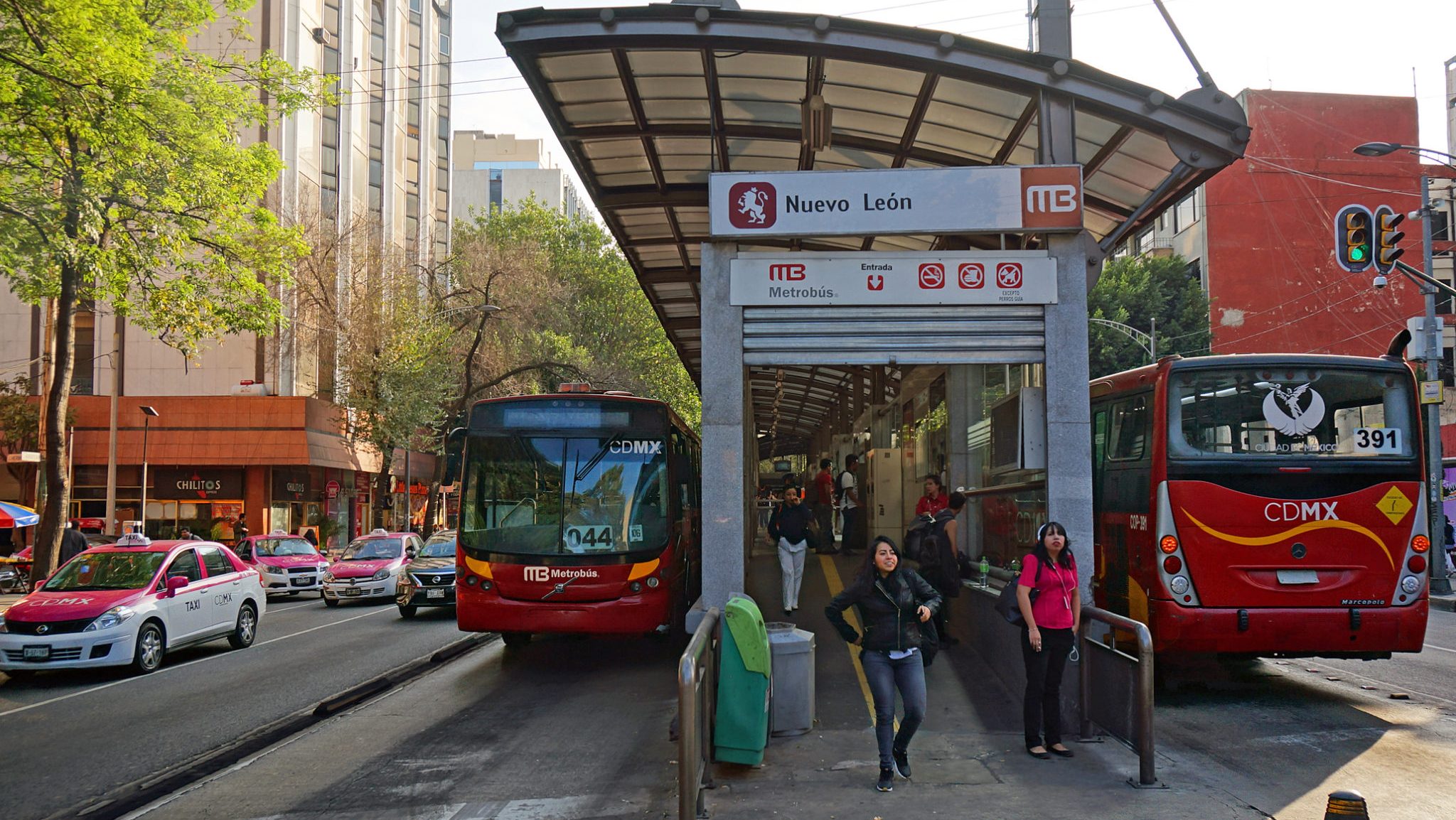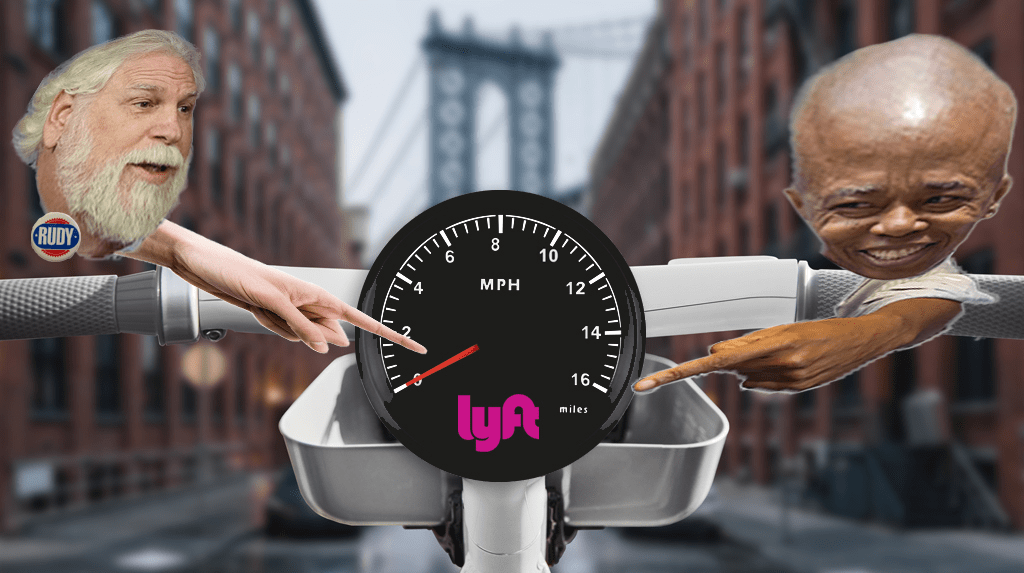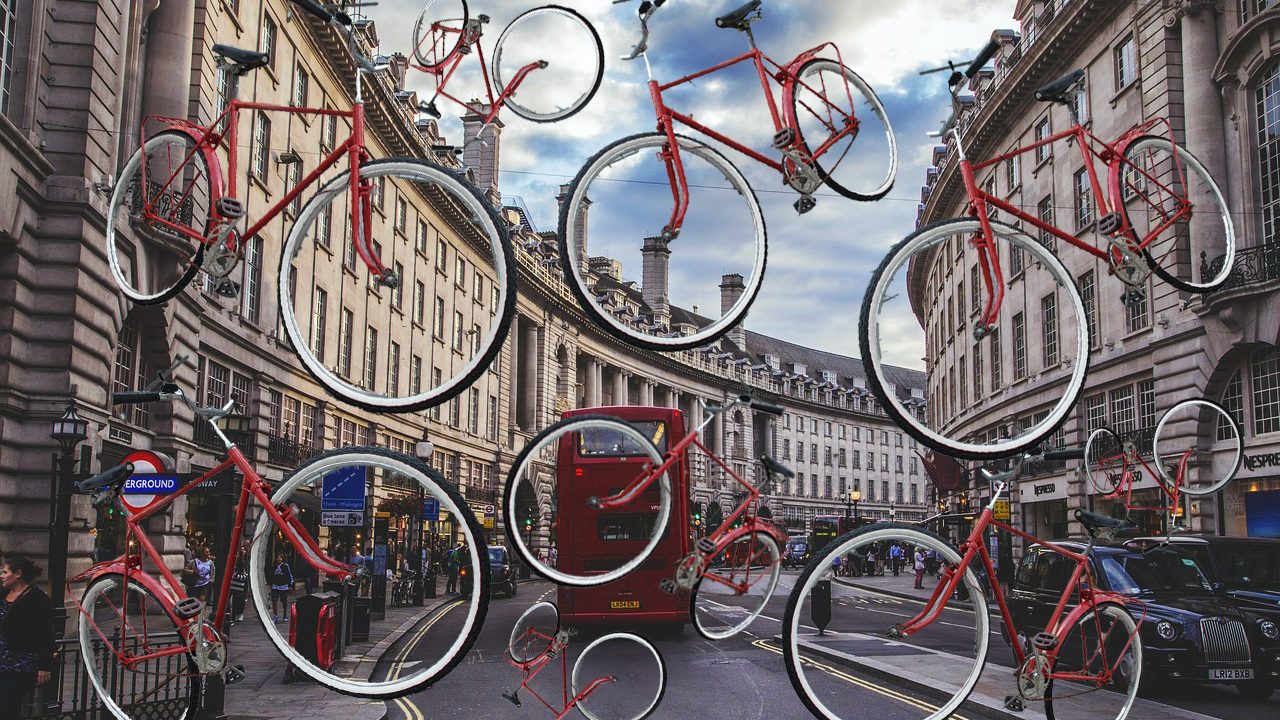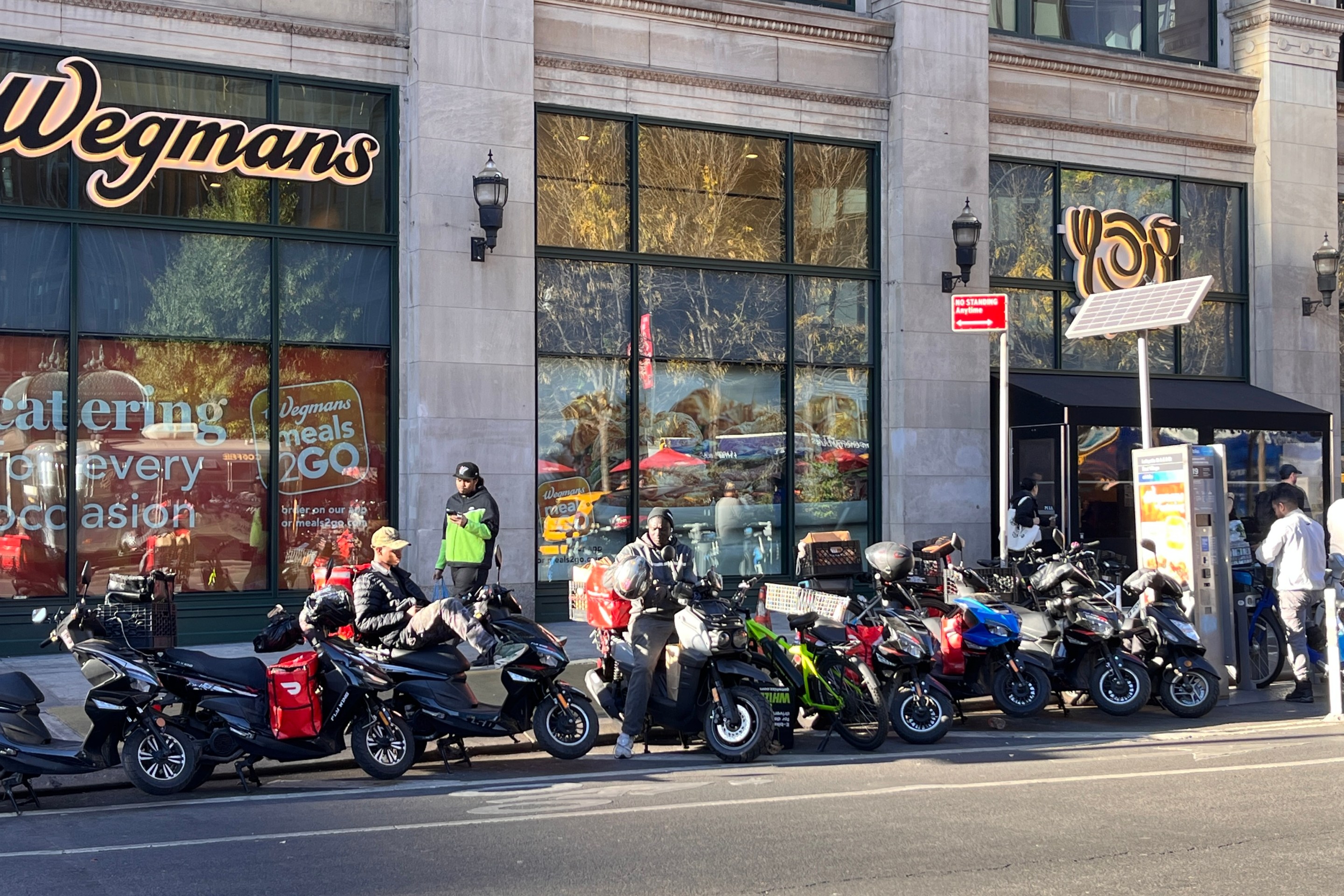The MTA can run clean trains and more trains, according to a new review of worldwide best practices for how transit agencies attracted riders after coronavirus.
The Tri-State Transportation Campaign's report, "Back on Board," laid out the science and public health decisions transit agencies should make to keep riders safe during the pandemic. Chief among those recommendations was a focus on frequent cleaning while trains are in service — which, according to Tri-State Executive Director Nick Sifuentes, is something the MTA can do after it restores service between 1 a.m.and 5 a.m. (which it will, right?)
"We now know that spread [of the virus] through surfaces is a lot less common than spread through vocalization, breathing, speaking, etc.," said Sifuentes. "So the MTA really needs to shift focus. That overnight service is critical for how New York operates, what our city is. So the more we can make that shift back to providing service especially for the essential workers who need it overnight, the more we can prioritize making sure the MTA is providing the level of service everybody needs."
The report still suggests a hearty cleaning regimen, especially on "high-touch" surfaces like elevator buttons, turnstiles and touchscreens, as well as the use of UV and electrostatic sprayers to clean the trains themselves. The MTA is currently exploring the regular use of UV rays to clean trains and uses electrostatic sprayers to clean trains while the system is shut down, but Sifuentes said he believes the agency can use the cleaning technology during service hours.
"We think these cleanings can be done quickly while trains wait at terminals and depots during off-peak and overnight service rather than shutting the whole system down," said Sifuentes.
When the MTA began its overnight cleaning efforts, the focus (in addition to removing homeless New Yorkers from the system) was on cleaning and disinfecting subway car surfaces. Since that decision in April though, the science around coronavirus transmission has solidified around the theory that the virus is spread through the air in poorly ventilated areas. Scientists say that it is important to clean surfaces, but a consensus has developed that surface cleaning doesn't have to be the primary focus of indoor areas.
"Surfaces and cleaning are important, but we shouldn’t be spending half of our budget on it when they may be having only a smaller effect," UMass Associate Professor of Biology Erin Bromage recently told the Wall Street Journal.
On public transit, the big risks involve mask-less riders doing things like talking and laughing.
"COVID-19's primary mode of transmission happens to be person-to-person contact," said Toph Allen, a senior data scientist at the EcoHealth Alliance. "Specifically, we think most of the transmission happens by inhaling, ingesting virus-laden particles, mostly respiratory droplets. This can happen when you breathe in respiratory droplets that other people have exhaled, or when you touch a surface the virus has settled on and then touch your face before washing your hands," he said.
The MTA, which is doing mid-day station disinfecting efforts in addition to the overnight ones, reiterated those efforts but did not otherwise say whether it agreed with advocates' suggestion that it could keep trains and stations clean and run 24 hour service.
"The MTA is undertaking the largest cleaning program in its history – including disinfection, UV, antimicrobials, and innovative air filters – as we continue to do everything possible to keep our customers and employees healthy and safe during New York’s phased reopening," said spokesperson Shams Tarek. "The results of this unprecedented program — which are visible across thousands of train cars and recognized by more than 70 percent of our customers — speak for themselves."
The report also focused on five international cities, offering some it's a success with some The report also focused on five international cities, offering some successes and some cautionary tales:
- London, like New York, experienced a massive free-fall in ridership. To compensate, the government passed a fair increase of inflation plus 1 percent, but also intend to raise the cities congestion pricing toll to discourage driving.
- Singapore managed to get millions of riders back relatively quickly by cleaning "high-contact areas in stations" every two hours. Every train is cleaned before departure.
- Tokyo benefited from nearly universal mask-wearing, and very few cases were actually tracked back to transit use (though the same could not be said for "gyms, bars, nightclubs and karaoke rooms," the report said).
- Paris added 30 miles of cycling lanes and also closed 30 streets to pedestrians, which encourage people to use less transit, which made the trains and buses less crowded.
Ridership on New York City subways and buses is still nearly 75 percent off its pre-crisis numbers, but the MTA was optimistic. On Monday, the agency put out a statement — and a new "Welcome Back" video (that, unfortunately, did not feature John Sebastian's classic song — saying ridership on the buses and subways and finally hit two million for the first time since the start of the pandemic in March.
— with Gersh Kuntzman
